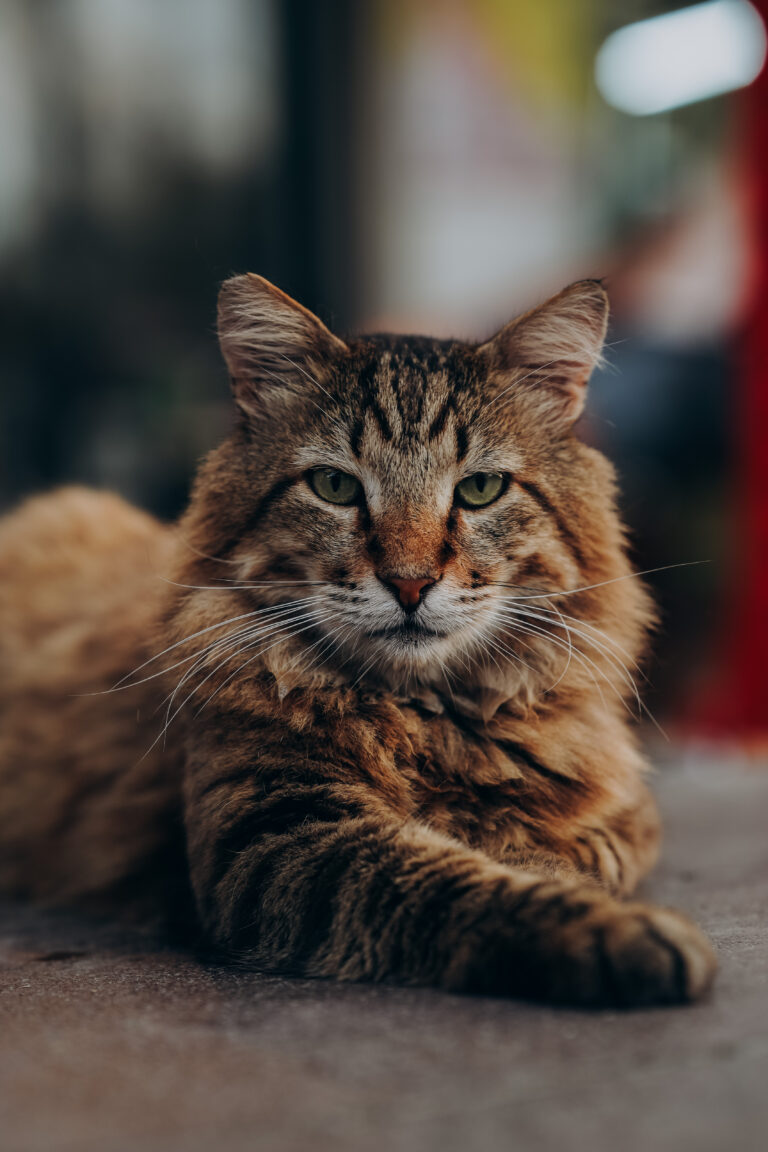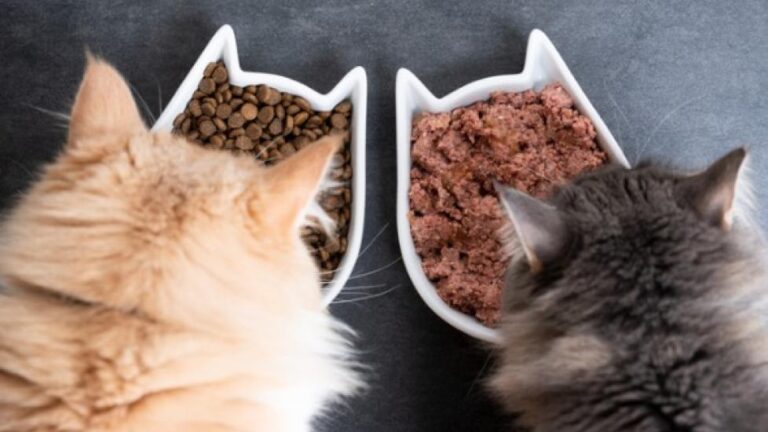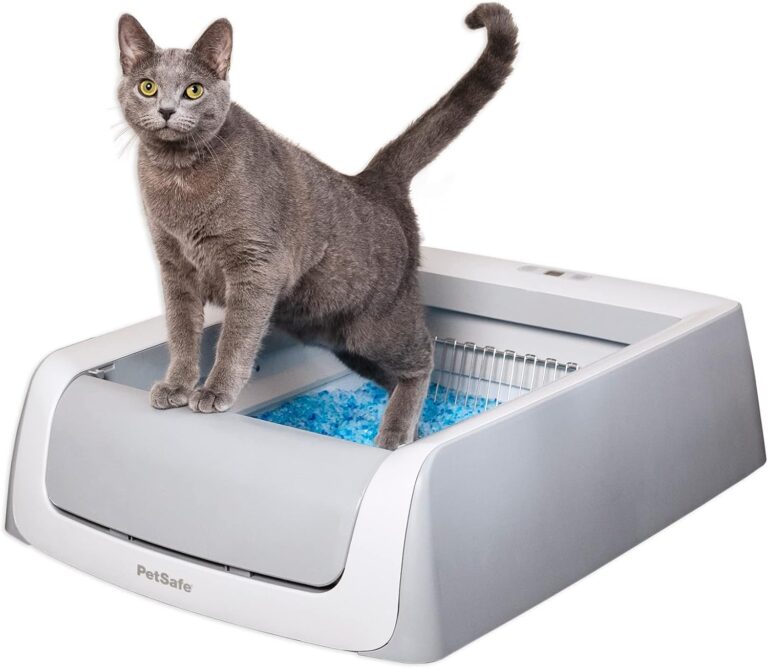When To Switch From Kitten To Cat Food
You may think that kittens and cats should eat the same food, but that’s not the case. As your furry friend grows, their nutritional needs change too. The transition from kitten to cat food is a crucial milestone in their development, ensuring they get the right balance of nutrients to support their overall health. In this article, we will explore the signs that indicate it’s time to make the switch, helping you provide the best diet for your beloved feline companion.
Factors to Consider
As a loving cat owner, it’s important to make informed decisions about your furry friend’s nutrition. When it comes to switching from kitten to adult cat food, there are several factors you should consider. These include the growth stage of your cat, their nutritional needs, any health conditions they may have, and proper weight management. By taking these factors into account, you can ensure that your cat remains healthy and strong throughout their life.
Growth Stage
The growth stage of your cat is an important consideration when determining when to switch from kitten to cat food. Kittens go through various age milestones that indicate their development. The first year of a cat’s life is crucial for their growth and overall health. During this time, their nutritional needs are different from those of adult cats.
Age
The age of your cat is a crucial factor to consider when deciding whether to switch to adult cat food. Generally, it is recommended to switch from kitten to cat food at around 12 months of age. However, this can vary depending on the breed and individual development of your cat. Consulting your veterinarian can provide you with specific guidance tailored to your cat’s needs.
Size and Weight
Another important aspect to consider is the size and weight of your cat. Larger breeds may require a longer period of time on kitten food, as they tend to have a slower growth rate compared to smaller breeds. It is essential to monitor your cat’s growth and consult your veterinarian to ensure they are on the right track.
Physical Development
The physical development of your cat is also important when deciding when to switch to adult cat food. Kittens go through various growth stages, which include the development of their muscles, bones, and teeth. Providing them with the right nutrients during these stages is crucial for their overall health and wellbeing.

Nutritional Needs
Understanding your cat’s nutritional needs is vital for their overall health and development. When considering the switch from kitten to adult cat food, there are several key factors to take into account.
Protein Content
Protein is an essential nutrient for cats, as it helps build and maintain their muscles. Kittens require a higher protein content in their diet compared to adult cats. When making the transition, ensure that the adult cat food you choose still provides an adequate amount of protein to support your cat’s growth and development.
Calcium and Phosphorus
Calcium and phosphorus are crucial minerals for the development of strong bones and teeth. Growing kittens need higher levels of these minerals in their diet. Ensure that the adult cat food you choose contains appropriate levels of calcium and phosphorus to meet your cat’s needs.
Essential Nutrients
In addition to protein, calcium, and phosphorus, kittens also require other essential nutrients such as vitamins and minerals for their overall health and wellbeing. The adult cat food you choose should be well-balanced and provide all the necessary nutrients your cat needs for their specific life stage.
Health Conditions
If your cat has any existing health conditions, it is essential to consider these when transitioning from kitten to adult cat food. Some health conditions may require specialized diets, so consulting your veterinarian is crucial to ensure that the new food meets your cat’s specific needs.
Food Allergies
If your cat has known food allergies, it is important to select an adult cat food that does not contain the allergen. Introducing a new food should be done gradually to monitor any potential allergic reactions.
Digestive Issues
Some cats may have sensitive stomachs or digestive issues. When switching from kitten to adult cat food, consider selecting a food that is gentle on the stomach and easy to digest. Slowly transitioning the food can help minimize any digestive upset.
Urinary Tract Problems
Certain cat breeds or individuals may be prone to urinary tract problems. In these cases, it is important to choose an adult cat food that supports urinary health. Look for formulas that promote urinary tract health and consult your veterinarian for specific recommendations.

Weight Management
Maintaining a healthy weight is crucial for your cat’s overall wellbeing. Weight management should be considered when transitioning from kitten to adult cat food.
Underweight Kittens
If your kitten is underweight or not gaining weight appropriately, it may be necessary to continue feeding a kitten formula for a longer period of time. Consult your veterinarian for guidance on when it is appropriate to switch to adult cat food.
Overweight Kittens
On the other hand, if your kitten is overweight, it is important to address their weight management during the transition. Choose an adult cat food that is lower in calories and fat to help maintain or achieve a healthy weight.
Maintaining Ideal Weight
Once your cat has reached adulthood, it is important to monitor their weight and adjust their diet accordingly. Feeding guidelines provided on the food packaging can serve as a helpful starting point, but every cat is unique. Regular weigh-ins and consulting with your veterinarian can help ensure your cat maintains an ideal weight throughout their life.
Signs It’s Time to Switch
Determining when to switch from kitten to adult cat food can sometimes be challenging. However, there are several signs that can indicate it’s time for the transition.
Age Milestones
If your cat has reached the age of one year, it is generally a good time to start considering the switch. Remember that individual factors, such as breed and development, should also be taken into account.
Increased Appetite
During their growth stage, kittens tend to have a higher appetite. If you notice that your cat’s appetite has significantly increased and they are consistently finishing their kitten food, it may be a sign that they are ready for adult cat food.
Weight Gain/Plateau
Monitoring your cat’s weight is important. If your kitten has reached a healthy weight or weight gain has plateaued, it may be an indication that it’s time to transition to adult cat food.
Dental Health
Once your cat’s permanent teeth have fully developed, it is important to switch to adult cat food. Adult formulas generally have larger kibble sizes that can help support dental health.
Stool Consistency
Your cat’s stool consistency can provide insights into their overall digestive health. If your cat’s stool is consistently firm and well-formed, it may indicate that they are ready for adult cat food.

Transitioning Process
When transitioning from kitten to adult cat food, it is important to do so gradually to avoid any digestive upset.
Gradual Introduction
Start by introducing the new adult cat food slowly. Mix a small amount of the new food with their regular kitten food, gradually increasing the ratio of adult food over a period of 7-10 days.
Mixing the Foods
During the transition process, it is important to maintain a consistent feeding schedule. Mixing the two foods together will help your cat become accustomed to the new flavor and texture gradually.
Monitoring Digestion
Pay close attention to your cat’s digestion throughout the transition process. If you notice any signs of digestive upset such as vomiting or diarrhea, slow down the transition and give their gastrointestinal tract more time to adjust.
Complete Switching
Once your cat has successfully transitioned to the new adult cat food without any digestive issues, you can complete the switch and feed them exclusively with the adult formula. Remember to always provide fresh water and monitor their appetite and overall wellbeing.
Choosing the Right Cat Food
Selecting the right cat food is essential for your cat’s health and wellbeing. When choosing adult cat food, consider the following factors:
Age-Specific Formulas
Look for adult cat foods that are specifically formulated for your cat’s age. These formulas are tailored to provide the appropriate nutritional support for their life stage.
Quality Ingredients
Opt for cat foods that contain high-quality ingredients. Avoid foods that contain fillers, by-products, or artificial additives. Look for formulas that have real meat as the primary ingredient and are free from unnecessary additives.
Reading Nutritional Labels
Take the time to read and understand the nutritional labels on cat food packaging. Familiarize yourself with the ingredients, guaranteed analysis, and feeding guidelines. This will help you make informed decisions about the nutritional content of the food.
Consulting a Veterinarian
When in doubt, it is always best to consult your veterinarian for specific recommendations on choosing the right cat food. They can provide valuable insights based on your cat’s individual needs and health conditions.
Common Mistakes to Avoid
To ensure a smooth and healthy transition, it’s important to avoid common mistakes that cat owners can make during this process.
Abrupt Switching
Switching from kitten to adult cat food abruptly can lead to digestive upset. Gradual transitioning is crucial to allow your cat’s digestive system to adapt to the new food.
Ignoring Specific Needs
Ignoring any specific health conditions or dietary requirements your cat may have can lead to potential health issues. Always take these factors into consideration and choose a food that meets their specific needs.
Feeding Inappropriate Foods
Avoid feeding your cat foods that are not appropriate for their age or nutritional requirements. Providing them with a well-balanced adult cat food ensures they receive the necessary nutrients for their growth and overall health.
Overfeeding
Overfeeding can lead to obesity and other weight-related health issues. Follow the feeding guidelines provided on the food packaging and monitor your cat’s weight regularly to prevent overfeeding.
Conclusion
Knowing when to switch from kitten to cat food is an important decision in ensuring your cat’s health and wellbeing. By considering factors such as growth stage, nutritional needs, health conditions, and weight management, you can make an informed choice. Remember to transition gradually, choose high-quality cat food, and consult your veterinarian for personalized recommendations. With proper care and attention, you can provide your beloved feline companion with the nutrition they need for a happy and healthy life.







